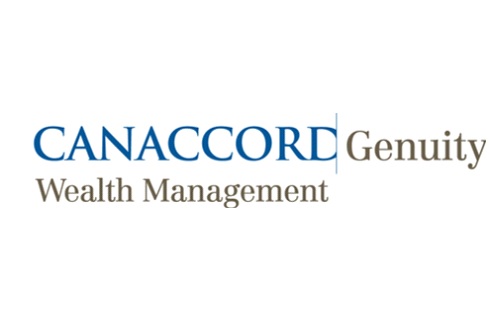Although the content(s) of the article were correct at the time of writing, the accuracy of the information contained within may no longer be current, as it may have been subject to subsequent tax, legislative or event changes. To browse more recent content, please see our Knowledge Centre.
This month:
Bull market celebrates its centenary
Bull market celebrates its centenary.
Investors brace for a more challenging second half.
Financials challenge technology stocks.
Signs emerge for a “changing of the guard”.
Featuring this month’s experts:
Rock-bottom interest rates continue and returns from traditional asset classes are expected to be subdued in the second half.
Here, leading wealth managers from our panel explain key opportunities and risks to look out for, discussing the prospects of private lending, global equities, UK commercial real estate, fixed income and India in particular.
Interest rates remain near zero – a significant problem for the wealthy
Insights from:

Christian Armbruester, Chief Executive of Blu Family Office, says:
It has been nine years since the financial crisis and interest rates in the developed world continue to be at record lows. For the wealthy, for whom the inflation rate is typically much higher than the Consumer Price Index (see Forbes’ Cost of Living Extremely Well Index), this represents a significant problem and the search for alternative sources of fixed income continues.
There are equity dividends, yet one takes on market risk (which can be hedged, but it’s expensive). There is property, yet this also bears illiquidity risk and we only have to look back at the financial crisis to understand the limits of this strategy. And there are credit trading strategies, but here again, one would need to take on considerable other risks tied to market conditions and the relative movement of prices.
![]()
With more and more strategies emerging and the ability to diversify across different types of lending and collateral, we feel that the private lending market will continue to grow and offer an excellent source of fixed income.
Seemingly, the only viable option to extract relatively low-risk yields are the private lending markets. Post 2008, a bevy of added regulation and supervision resulted in banks having less appetite to lend. This created a gap between the demand for loans and the amount of available bank lending, forcing borrowers to look for other sources of financing. In 2015, dedicated private lending funds raised more than US$ 85bn – double the volume of the previous five years together.

Christian Armbruester
Chief Executive of Blu Family Office
Subdued returns for the second half of the year
Insights from:

Larry Hatheway, Group Head of Investment Solutions and Group Chief Economist at GAM, says:
Looking ahead, the supporting factors for equities remain intact, but valuations are higher and the market is showing signs of exhaustion. Bond markets are likely to produce weak returns as the Fed continues to normalise policy and as the European Central Bank lays out its 2018 strategy of tapering asset purchases. Overall, therefore, the outlook suggests more subdued returns, but without major setbacks, for capital markets in the second half of 2017.
The second quarter earnings season has supported global equities, with mostly positive returns across sectors, including financial and technology firms. Still, expectations are high and therefore difficult to beat. Looking ahead, the earnings focus shifts to Europe, Japan and emerging markets. For the most part, the result should be positive, given a cyclical upswing in Europe and much of the emerging complex, as well as signs of sustainably higher earnings in Japan.
The Fed will continue on a path of monetary policy normalisation despite moderate growth and still low inflation, but is likely to postpone further interest rate hikes until December, if not next year. Instead, the Fed will focus on balance sheet reduction. The ECB is also likely to announce the path of balance sheet adjustment – or tapering of asset purchases – to commence in early 2018.
![]()
In our portfolios, we are taking a slightly more cautious stance, reducing some of our exposure to global equity markets in favour of carry positions, particularly in areas of subordinated debt and off-the-run debt securities, including mortgage-backed securities.
The reduction in exposure to equities is not necessarily a negative view on global equity markets; it simply reflects a loss of momentum.

Larry Hatheway
Group Head of Investment Solutions and Group Chief Economist at GAM
A weakening outlook for the UK commercial real estate market
Insights from:

Caroline Simmons, Deputy Head of the UK Investment Office at UBS Wealth Management, says:
Despite the endless number of skyscrapers towering above London City, the outlook for UK commercial real estate is far from concrete. Investors considering pouring in should heed some key signals.
The slowing GDP backdrop implies weaker economic activity and employment growth, which should hold back demand for real estate. Meanwhile, supply, benign in recent years, is set to increase to above-average levels both this year and next. As a result, our view is that capital values could decline by as much as 5%.
As ever, much is dependent on the macroeconomic outlook. The economy has performed better than expected since the EU referendum, thanks mainly to robust consumer spending. But, given continued pressure on household incomes from above-target inflation, we expect consumer spending to slow from here. A slowdown in consumer spending will weigh on commercial real estate, particularly on high street tenants.
Moreover, the nascent state of the Brexit negotiations means there is little clarity on what the abolishment of the current financial services passport might imply – leaving open the possibility of a mass financial services relocation from London. A study conducted by PwC estimated that nearly 100,000 financial services jobs could leave London by 2020. Whilst this number looks particularly high against the current contingency plans being floated by financial firms, such an exodus as this would take a huge toll on rents, with the City most heavily affected.
![]()
Though the picture remains unclear, it is important to stay focused on high-quality assets with reliable income streams rather than searching out higher yields from lower-quality assets. As the cycle continues to slow, rental income will become an increasingly important part of real estate returns. At this stage of the cycle, quality of property and quality of tenant are essential for investors wishing to allocate towards.
At this stage of the cycle, quality of property and quality of tenant are essential for investors wishing to allocate towards commercial real estate.

Caroline Simmons
Deputy Head of the UK Investment Office at UBS Wealth Management
Be both targeted and tactical on fixed income
Insights from:

Rory Mcpherson, Head of Investment Strategy at Psigma Investment Management, says:
Government bonds offer poor value, and core credit and high yield spreads are approaching their lows for this cycle.
The grab for yield has reached new levels recently and this is perhaps best highlighted by Argentina’s recent issuance of a 100-year bond. The Argentines aren’t the most discerning long-term borrowers and their track record of repayment is not glowing. They’ve defaulted eight times on their sovereign debt since 1824 and been in default on at least some of their debts for all but six years of the past two decades!!
![]()
We are sceptical of core areas of the bond market and believe that now more than ever is a time for being both targeted and tactical in one’s approach to owning fixed income.
On the face of it, this seems akin to your mate who used to have a gambling problem trying to touch you up for a few quid in Cheltenham week. All common sense would say you’d decline – even if the interest payments on offer seemed ok. The fact that the issue was 3.5 times over-subscribed is pretty stark and to us highlights the over-exuberance in bond markets. A yield of just shy of 8% is definitely attractive in today’s world, but when the country borrowing it was in default just over a year ago, to us it highlights the folly currently at play within certain parts of the bond market.
We do still find value in less well-trodden areas of the fixed income markets (asset-backed securities and emerging market debt), but are cautious on traditional holdings – waiting for a pullback in these markets to buy in at more attractive levels.

Rory Mcpherson
Head of Investment Strategy at Psigma Investment Management
Investing in India? It’s the technology, Stupid…
Insights from:

Patrick Thomas, Investment Manager and Fund Expert at Canaccord Genuity Wealth Management, says:
As we reach peak monsoon season in the world’s fastest-growing economy, investors’ minds turn to the latest opportunities. We all know what’s attractive about India – the demographics and the political reform agenda. And the valuations are broadly reflective of this: India isn’t cheap.
Many investors are betting on a Modi victory in next year’s election. But this isn’t a given and we think it’s important to approach India more thoughtfully. We see a longer-term consumer growth story as being more seductive than a bet on what Modi might achieve.
In our view there are a few key trends that are shaping the investment landscape in India. Firstly, we think the technological aspect of Modi’s reforms remain under-appreciated and are a platform for accelerating economic growth. Its expanding digital infrastructure is helping reach citizens in remote areas – nearly one billion citizens will be using the internet by 2021. The national biometric identity card is another forward-thinking initiative.
We are also seeing the shift of household savings into equities and we think it could drive a sustainable long-term rise in India’s stock market. For the first time ever, India’s domestic investment outpaced foreign fund flow into equities for the twelve-months-ending May 2017.
![]()
India isn’t without its challenges, but it is on the cusp of an economic and technological revolution, which could result in certain domestic equities outperforming the rest of the world.
We play the India theme through pure-play India-specific funds like First India State Subcontinent and Reliance Indian Equities. We see managers with consistent track records in unearthing value in this expensive stock market, as being key components of multi-asset portfolios.

Patrick Thomas
Investment Manager and Fund Expert at Canaccord Genuity Wealth Management
Time to take (Financial) stock
Insights from:

Lee Goggin, Co-Founder of findaWEALTHMANAGER.com, says:
As the holiday season gets underway, things are certainly getting quiet. Markets, despite the occasional burst of volatility, are holding steady and most of us have grown tired of politics and its antics. It’s the perfect time for a break. Holidays are the time to recharge and reassess; with busy lives we long for the opportunity to relax and seek a different perspective.
Potential clients exploring professional advice for the first time make up the bulk of our site visitors. Increasingly however, people who are currently looked after by a wealth manager are seeking alternatives, wondering if they might be better served elsewhere. In our experience, it is reasonable to think they might be.
![]()
Good service, competitive fees and solid performance really matter. If you are not getting these then perhaps it really is time to look elsewhere?
Changing wealth manager feels like a daunting prospect to many. People may fear things going wrong, it costing them a fortune or getting stung by Capital Gains Tax, but in fact changing provider has never been simpler – and needn’t entail any penalties at all.
Let us help you identify the best manager for you, based on fact and not on a recommendation from a friend, accountant or lawyer. Give a new firm the relevant permission and they will write to your existing firm to tell them you are leaving them, thus alleviating the stress of changing.

Lee Goggin
Co-Founder of findaWEALTHMANAGER.com
Important information
The investment strategy explanations contained in this piece are for informational purposes only, represent the views of individual institutions, and are not intended in any way as financial or investment advice. Any comment on specific securities should not be interpreted as investment research or advice, solicitation or recommendations to buy or sell a particular security.
We always advise consultation with a professional before making any investment decisions.
Always remember that investing involves risk and the value of investments may fall as well as rise. Past performance should not be seen as a guarantee of future returns.
